How do you know if you are at risk for lung cancer?
We take around 23,040 breaths a day, constantly exposing our lungs to the surrounding environment.

Risk 1: Smoking
Smoking, including cigarette, cigar, and pipe smoking, is thought to be responsible for 80% of all lung cancer diagnoses. And while heavy smokers are at the highest risk, any amount of smoking is the wrong amount. Learn more about how you can quit with these resources.
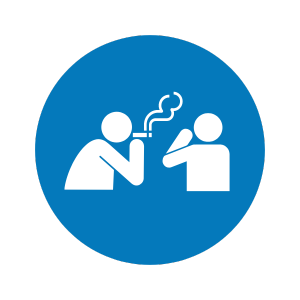
Risk 2: Exposure to Second-Hand Smoke
Also called environmental tobacco smoke, second-hand smoke awareness has increased in recent decades. Even if you don’t smoke, your lung cancer risk increases if you are regularly around other people who do smoke.
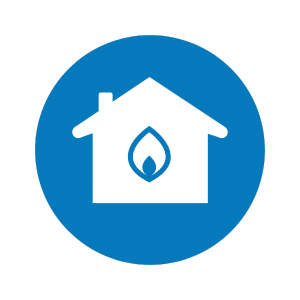
Risk 3: Radon Gas Exposure
Radon gas is a naturally occurring gas that results from the breakdown of uranium in soil. Test kits, available at home improvement stores, can help to determine whether unsafe levels of radon are present. Learn more about how exposure to radon gas is a risk you can manage.
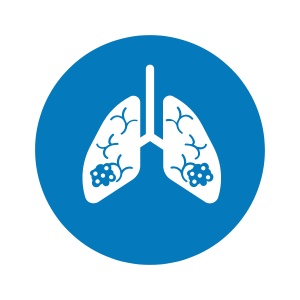
Risk 4: Asbestos Exposure
More common in workplaces such as mines, mills, and shipyards, exposure to large amounts of asbestos puts you at a greater risk of developing mesothelioma, a type of cancer that starts in the lining surrounding the lungs. Make sure you use all protective equipment provided by your employer and follow all recommended safety procedures. If you are still concerned, see your doctor and/or visit the Occupational Safety and Health Administration website for more information.
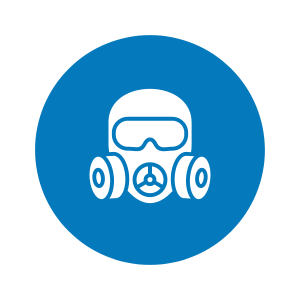
Risk 5: Exposure to Other Carcinogens
If you are exposed to carcinogens at work, make sure to follow all of the safety guidelines recommended by your employer.
These identified cancer-causing agents, and carcinogens, include:
- Radioactive ores (such as uranium)
- Inhaled arsenic
- Inhaled beryllium
- Inhaled cadmium
- Inhaled silica
- Inhaled vinyl chloride
- Inhaled nickel compounds
- Inhaled chromium compounds
- Inhaled coal products
- Inhaled mustard gas
- Inhaled chloromethyl methyl ethers (or diesel exhaust)
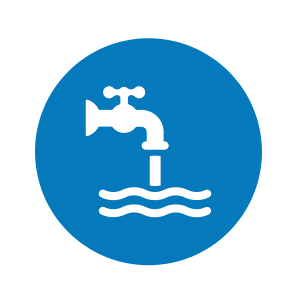
Risk 6: Arsenic in Drinking Water
Studies in Southeast Asia and South America show that areas with high arsenic levels in drinking water have a higher lung cancer risk. For most Americans who are on public water systems, drinking water is not a major source of arsenic. The Environmental Protection Agency regulates arsenic levels in public drinking water in the United States, although there are some instances of high arsenic levels in rural communities or communities using private wells. Albuquerque, New Mexico, is the only urban area in the US with substantial natural arsenic levels in drinking water. To get water from a private well tested for arsenic, contact your local health department or a certified lab.
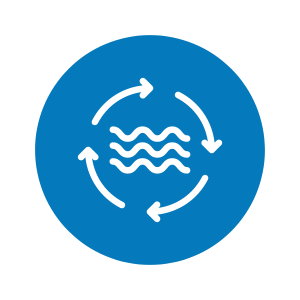
Risk 7: Air Quality
Some researchers estimate that about 5% of lung cancer deaths worldwide are due to outdoor air pollution. People who live in cities, especially near high-traffic roads, have a slightly increased risk of lung cancer. Follow recommendations for avoiding exposure such as exercising in the morning or staying indoors on high-pollution days. Check air quality forecasts to decide about your outdoor activities. Check AirNow.gov to keep an eye on your air quality.
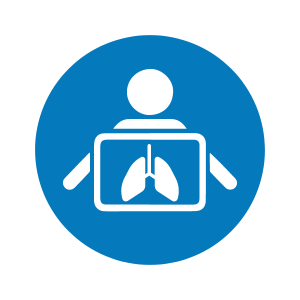
Risk 8: Previous Radiation to Lungs
People who have radiation therapy to the chest to treat other cancers, such as Hodgkin Disease or breast cancer, are at a higher risk for lung cancer. Your age at the time of the previous treatment affects your risk for lung cancer. Your risk for lung cancer is higher if you were treated with radiation when you were young. Be sure your doctor is aware of any past history of radiation treatment.
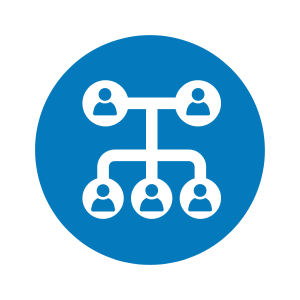
Risk 9: Previous Diagnosis or Family History
If you have had lung cancer, you have a higher risk of developing another lung cancer. Siblings and children of those who have had lung cancer also run a slightly higher risk of lung cancer themselves. Discussing your family history with your doctor is one of the best ways to stay on top of these risks.
If you have any concerns regarding these lung cancer risk factors, you should see your doctor to determine if you need further screening.


